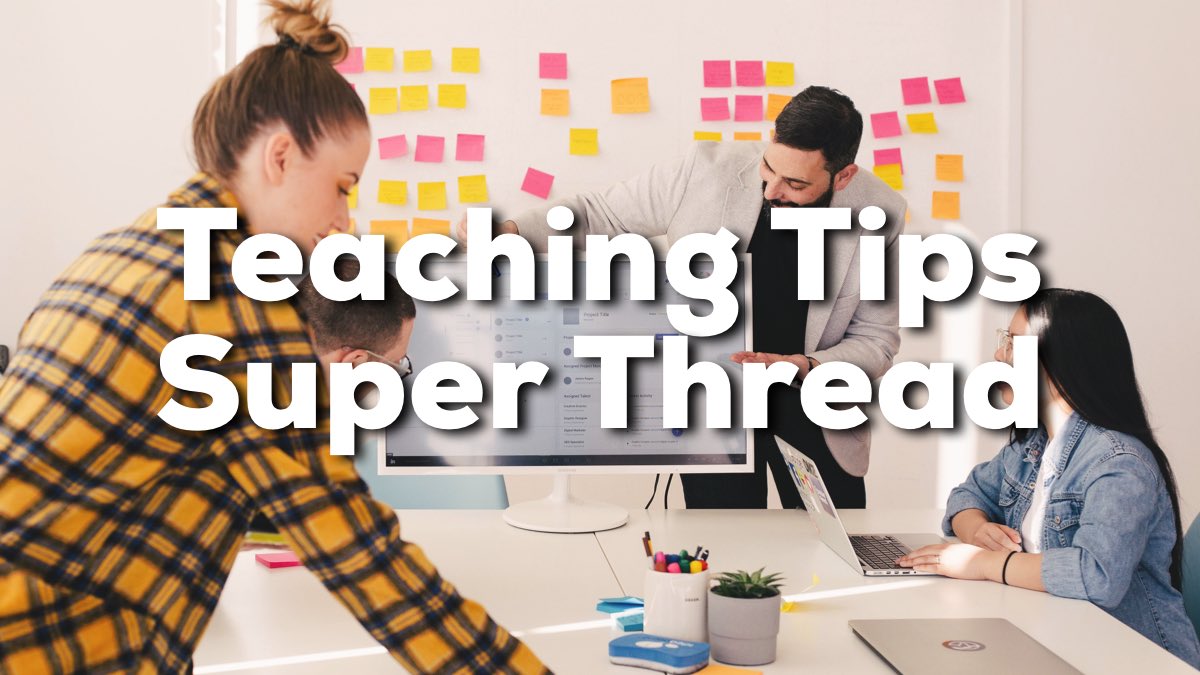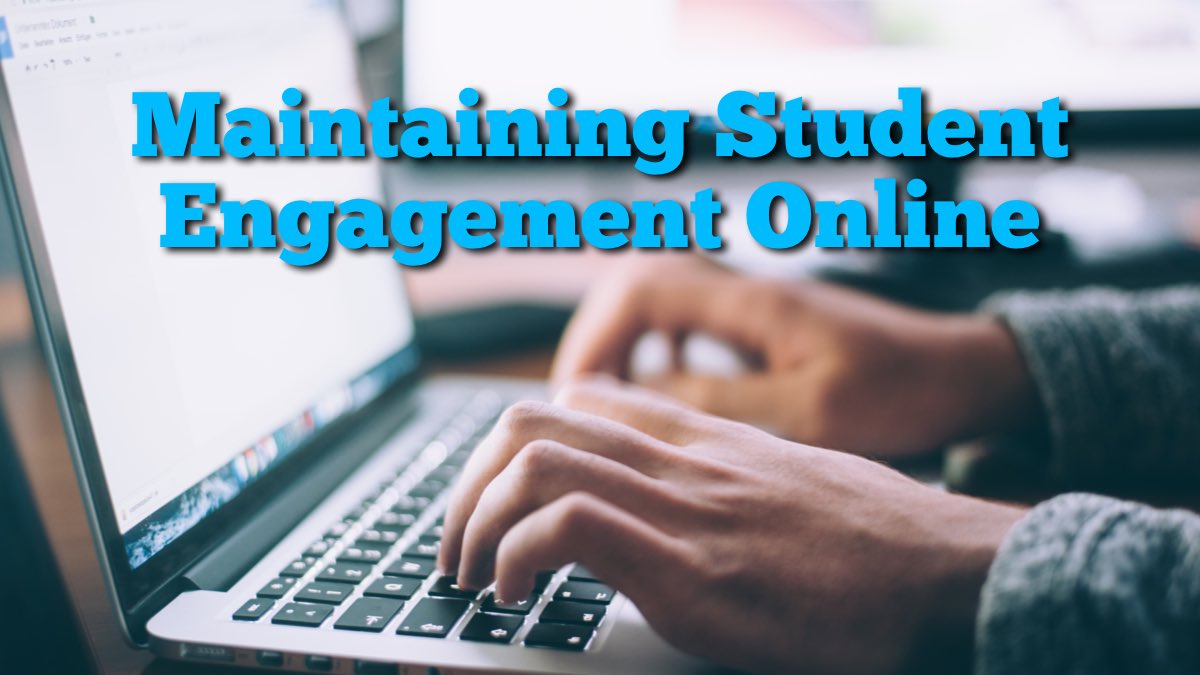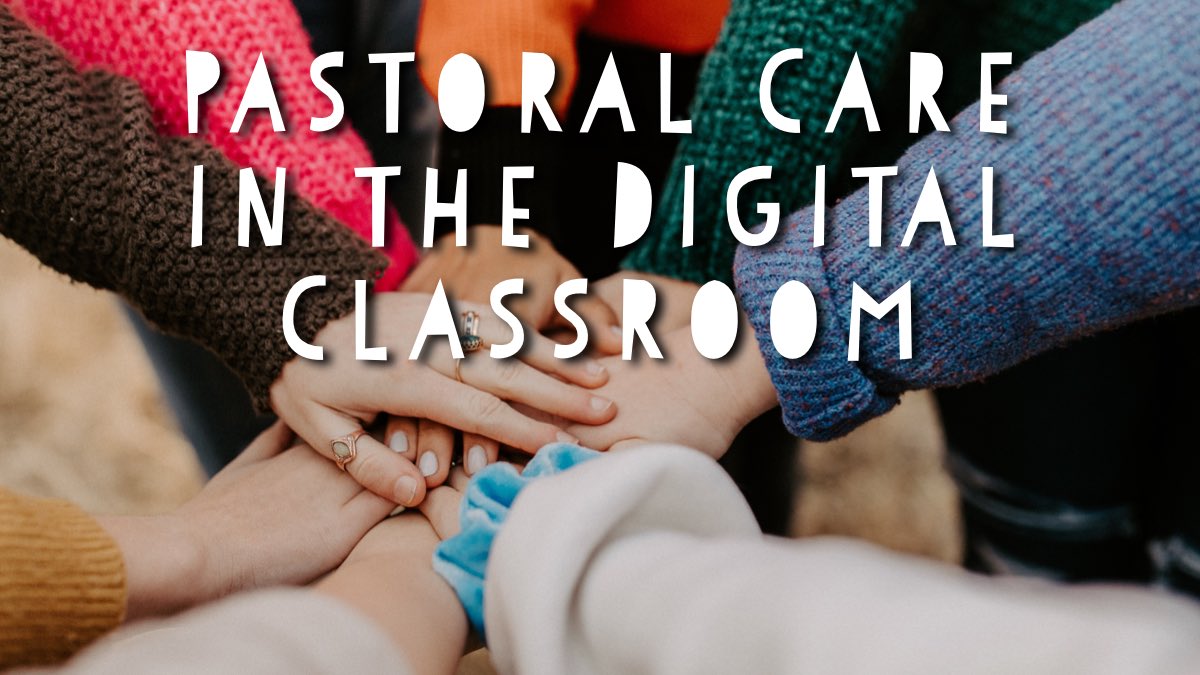Dyslexia and Inclusive Online Education (A Thread).
To start this one off I want to stress that much of this is from my experience. I'm dyslexic. However, dyslexia is a broad spectrum. Not every dyslexic student will be like me, and I am not like every dyslexic student. [1/n]
To start this one off I want to stress that much of this is from my experience. I'm dyslexic. However, dyslexia is a broad spectrum. Not every dyslexic student will be like me, and I am not like every dyslexic student. [1/n]
I wanted to frame this with a little bit of my personal experience... because it will put some of my tips and ideas into a little context. My experience has also framed many of my positions regarding the attainment gap for disabled students. [2/n]
I was diagnosed with dyslexia when I was 7 years old in 1992. At the time this was pretty rare, as the formal guidance was that students shouldn't be assessed until they were older... but my presentation was pretty acute to say the least [3/n]
My mum had attended a "mothers group" seminar from an educational psychologist, and she noticed that many of the traits she mentioned described me pretty accurately. The psychologist agreed to assess me. As a n.b. she was formally reprimanded for assessing me so young [4/n]
The assessment was only the first hurdle, my mum spent the next 5 years fighting to get me the support I needed... The schools I attended dug their heals in and argued profusely that my only problem was that I was (quoting from a report) "abjectly lazy, and insubordinate" [5/n]
I like to think that I am still a little insubordinate...
One of my teachers actually told my mum at a parents evening "If Chris ever achieves anything, it won't be academic" - at 9 years old I had been written off... and in retrospect, it showed. [6/n]
One of my teachers actually told my mum at a parents evening "If Chris ever achieves anything, it won't be academic" - at 9 years old I had been written off... and in retrospect, it showed. [6/n]
"but this was in the '90s, everything is different now!".
Right... apart from the fact that the teacher in question only retired 2 years ago. I have actually taught students from the same primary school (her ex-pupils) while I have been at university. [7/n]
Right... apart from the fact that the teacher in question only retired 2 years ago. I have actually taught students from the same primary school (her ex-pupils) while I have been at university. [7/n]
I actually did pretty badly at school (apart from sport and DT) until Y9, when the school got a new English teacher. A year taught by her and I actually took my English GCSE's a year early (and did quite well). The confidence this gave me turned around my other subjects too [8/n]
So, in short, my academic future was almost crushed by a system that wasn't built to support me, and teachers who gave up on me... It took one inspiring educator to turn things around and put me on track. And she did that in a year. I owe Ms. Silver my life as it is :-) [9/n]
I was also fortunate that I came from a supportive home. My mum would read with me for an hour every morning. And I was given all the support, creative outlets, and the encouragement I needed. My parents are amazing... I had friends who were much less fortunate [10/n]
And yes, some things have got better, and there are AMAZING teachers in the world. But many dyslexic students today still report similar concerns and experience. Check out the research soon to be published by @L_A_Jacobs who has done extensive work in this area [11/n]
When we talk about attainment gaps for disabled students, it is important that we remember that there are no quick fixes because there is no single issue. We have issues all the way through the education system, and the support of one inspiring teacher won't save everyone [12/n]
I do think there are some easy things we can do to make education more inclusive for dyslexic students. These are some general tips I have, but I must stress that these are based on my variation of dyslexia and won't help everyone. These are also based on blended learning [13/n]
Fortunately, at @unilincoln we have the incredible @themolecularlab leading the charge on accessibility support and training. We also have some fantastic student-led initiatives led by @ulsu_wellbeing, @ulsu_education, and @ULSU_Activities. [14/n]
Tip 1: Keep text on slides to a minimum. A few bullet points is better than a string of text. A dyslexic student will read text slower, and their focus on that may pull focus away from you (the expert they are learning from). [15/n]
Tip 2: Use pictures and gifs. Some words take longer to read, an image that puts the text in context can help people to decode the text much quicker. Ask yourself if text NEEDS to be on a slide. Or would this be better placed in notes? [16/n]
Tip 3: Consider collaborative note-taking or note sharing. I don't do this much anymore (with large groups it can be tricky) but a shared document that all students can add to can simplify note-taking for EVERYONE. And can allow students to focus on the session. [17/n]
Tip 3: Try to release material early if possible. With slides, this isn't always helpful without the context of the lecture. But also consider pointing people towards videos (youtube), book chapters, or podcasts that relate to the lecture about to be delivered. [18/n]
Tip 4: Be multi-modal. As many sessions are happening online, we have the opportunity to vary our delivery mechanisms. Try podcasts (remember to use systems that have transcriptions or captions) or Vlogs in addition to notes - sometimes these are also quicker to prepare [19/n]
Tip 5: Break sessions down, and use constructive breaks. Don't lecture for 2 hours straight. Try a 15min component followed by opportunities to chat and discuss. This structured break can give people a chance to catch up, finish their notes, and decode the information [20/n]
Tip 6: Don't "Justify" text. Varying the spacing between letters to fit the page better makes the content very hard for many dyslexic students to read (especially in a lecture environment). [21/n]
Tip 7: Don't infantilise. You may have been told that Comic Sans is easier for dyslexic students to read. It isn't its been debunked... and honestly, presenting things this way can really otherize dyslexic students. [22/n]
Tip 8: Summarise regularly. Reemphisise points as you go through. This can help with the information decoding process and can aid retention of key facts. [23/n]
Tip 9: Allow for individuality. By university, many dyslexic students will have their own coping strategies; allow them to use them. Most dyslexia teaching advice focuses on student-centred individualised learning. How will you support that in your sessions? [24/n]
Tip 10: Vary your assignment portfolio. Consider a broad range of methods to demonstrate competence. I'm not saying to avoid essays (especially if reports are central to your graduate outcomes) but a range of types supports more students. Check out @RacePhil book here [25/n]
Tip 11: Encourage peer mentorship and study-group formation. Peer support can be so important, and peers often have a way of re-explaining information in a way that helps! Friends will often have a better understanding of their peer's needs and can be an absolute lifeline [26/n]
Tip 12: Know what additional support is available through your institution. Knowing how (and when) to direct a student to extra study skills support can be essential. Build a good relationship with these teams. At Lincoln we have an amazing wellbeing group @UniofLincolnSWC [27/n]
Tip 13: Signpost content. Especially important online is clearly signposting where information, notes, slides, and extra materials are available. Online navigation is all text and link-based and it can be very easy to get lost! [28/n]
Tip 14: Be pastoral. Be someone the student can talk to. You would be amazed by how many students go through life not knowing they are dyslexic. A friendly face that a student can talk to can help them to identify their needs and get further help [29/n]
Of course... most of these tips will help far more students than just dyslexic individuals. My closing comment is that inclusive education is just good education. Keen to hear your own tips and ideas [30/30] DONE 😀
• • •
Missing some Tweet in this thread? You can try to
force a refresh








